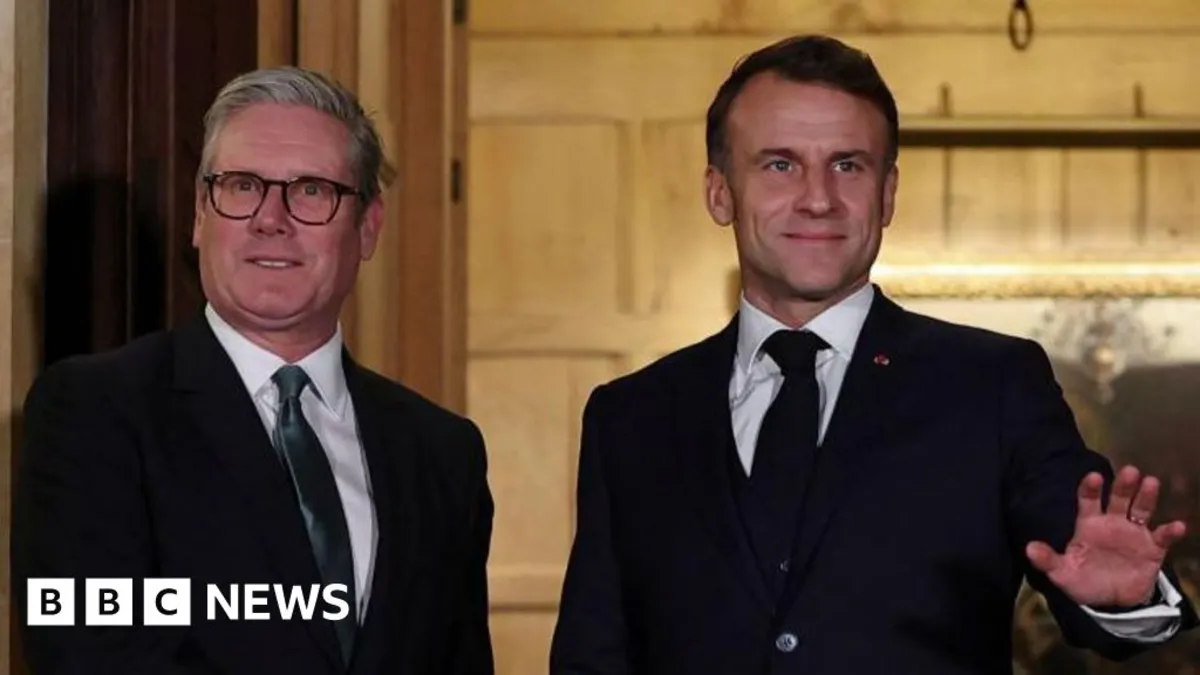
European leaders are preparing to gather next week for an emergency summit focused on the ongoing war in Ukraine. This meeting is in response to growing concerns that the United States is advancing peace talks with Russia that may exclude European participation.
Sir Keir Starmer, who is anticipated to attend the summit in Paris, emphasized the critical nature of this moment for national security. He stated that it is evident that Europe must assume a more significant role within NATO.
This development arises after Donald Trump's special envoy to Ukraine suggested that while European leaders would be consulted, they would not be directly involved in any discussions between the US and Russia aimed at ending the war.
Senior officials from the White House are also slated to meet with Russian and Ukrainian negotiators in Saudi Arabia in the near future, as per US officials. This move has stirred concerns among Ukraine and European allies, as the special envoy Keith Kellogg remarked that previous negotiations were unsuccessful due to the involvement of too many parties.
"It may be like chalk on the blackboard, it may grate a little bit, but I am telling you something that is really quite honest," Kellogg said on Saturday.
Europe remains wary due to the legacy of the Minsk agreements, a failed ceasefire deal between Ukraine and Russia brokered by France and Germany in 2015. These talks aimed to end hostilities in the Donbas region of eastern Ukraine.
Sir Keir views his role as pivotal in uniting the US and Europe to ensure a cohesive approach to peace in Ukraine.
The UK Prime Minister plans to discuss the perspectives of European leaders during his visit to US President Trump at the White House later this month. A subsequent meeting involving European leaders and Ukrainian President Volodymyr Zelensky is expected following Sir Keir's return from Washington.
Sir Keir asserted that the UK is committed to maintaining solidarity between the US and Europe, highlighting that any division could detract from addressing external threats.
"This is a once-in-a-generation moment for our national security where we engage with the reality of the world today and the threat we face from Russia," he stated. "It's clear Europe must take on a greater role in NATO as we work with the United States to secure Ukraine's future and confront the threat from Russia."
Polish Foreign Minister Radoslaw Sikorski mentioned that Emmanuel Macron had called for the summit of European leaders, although the French president has not yet announced it.
Sikorski explained, "President Trump has a method of operating, which the Russians call reconnaissance through battle. You push and you see what happens, and then you change your position, legitimate tactics. And we need to respond."
Earlier, President Zelensky advocated for the establishment of a "European army" amidst concerns that the US might not come to the continent's aid. Speaking at the Munich Security Conference, he noted that US Vice-President JD Vance's speech indicated a shift in the traditional Europe-America relationship, necessitating adjustments from Europe.
Zelensky also stressed that Ukraine would not accept any agreements made without its involvement, following the announcement of peace talks between Trump and Russian President Putin.
Recently, the US President announced a lengthy phone conversation with the Russian leader, signaling the start of negotiations to halt the "ridiculous war" in Ukraine. Trump subsequently informed Zelensky of his plans, showcasing confidence in his leadership to forge a peace deal.
This renewed dialogue between the US and Russia marks the end of over three years of silence since Trump's controversial meeting with Putin in Helsinki in 2018.
On Saturday, US Secretary of State Marco Rubio also engaged in discussions with Russia's foreign minister, building on the recent Trump-Putin conversation.
According to US Representative Michael McCaul, senior officials from the Trump administration will commence peace talks with Russian and Ukrainian negotiators in Saudi Arabia soon. McCaul mentioned that Zelensky has been invited to participate in these talks, aimed at arranging a meeting with Trump, Putin, and the Ukrainian president to finally bring peace and end the conflict.
A day prior, Vance criticized European democracies, claiming that the greatest threat to the continent arises from within rather than from Russia and China. He reiterated the Trump administration's stance that Europe must significantly enhance its self-defense capabilities.
David Lammy highlighted that the UK and EU countries need to increase defense spending, as Europe faces existential questions even in the event of a negotiated peace in Ukraine. Speaking at the Munich Security Conference, he stressed that Putin remains a persistent threat, and while it is positive that 23 NATO countries now allocate at least 2% of their GDP to defense, further investments are necessary.